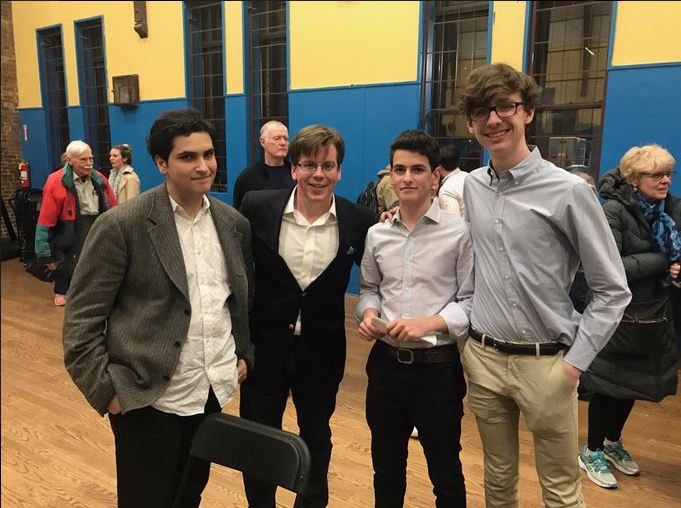Carroll seeks to lower voting age to 17
High school students helped lawmaker craft bill

Assemblymember Robert Carroll (second from left) meets students Max Shatan, Eli Frankel and Chris Stauffer (left to right) after the teens contacted him with their idea to lower the voting age. Photo courtesy of Carroll’s office
New York state’s voting age would be lowered from 18 to 17 under a bill sponsored by Assemblymember Robert Carroll, who credited three high school students with the bold idea.
Max Shatan, Eli Frankel and Chris Stauffer, all of whom attend Bard High School, reached out to Carroll (D-Park Slope-Windsor Terrace) earlier this year to propose a change in state law to allow teenagers to vote.
New York state’s voting age was last lowered in 1971, from 21 to 18.
